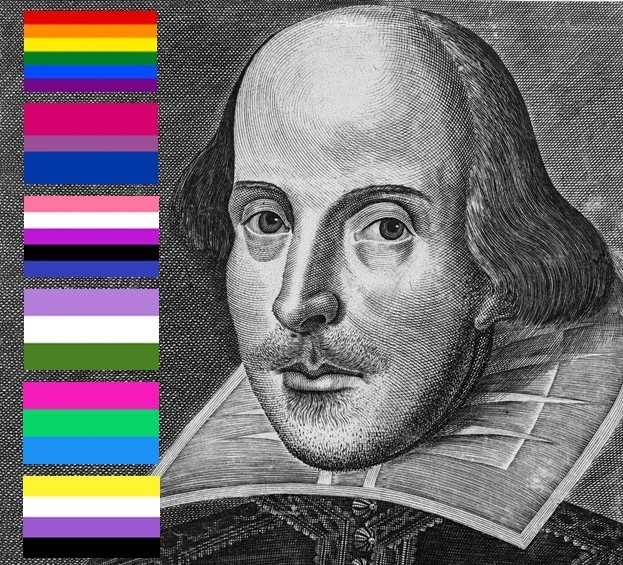To queer or not to queer Shakespeare? – Stonewall Lecture 2019
February 26, 2019
by Lewis Brennen
On Thursday 21st February Professor Bruce Smith (University of Southern California) came to Southampton to deliver the eighth annual Stonewall Lecture. The Stonewall Lecture series is organised by Professor Mark Cornwall and aims to explore the rich heritage that is lesbian, gay, bisexual, transgender and queer (LGBTQ) history, in order to educate the present about the past and to promote social justice and inclusivity. Excitingly, this was the first time that the lecture looked back beyond modern history into the early modern period.

Bruce’s lecture was titled ‘To queer or not to queer Shakespeare? Prospects fifty years after Stonewall’ and he began by reminding us that in 2019—fifty years after the Stonewall Riots that are often seen as marking the beginning of the modern gay rights movement—the question of whether to queer Shakespeare or not seems perfectly reasonable. In 1969, conversely, many would have been aghast at the notion. Bruce outlined an etymology of the verb ‘to queer’, noting that it essentially means to undermine heteronormative ideas of gender and sexuality by examining something in light of the cultural priorities of queer theory. The lecture aimed to queer each of the four meanings of the noun ‘Shakespeare’: 1) the historical Shakespeare, the man named William Shakespeare who lived in England around the turn of the seventeenth century; 2) Shakespeare as author function, in other words the cultural projection of Shakespeare as a variety of figures and identities in different times and places; 3) the collected works of Shakespeare; and 4) Shakespeare as a transnational cultural icon.
Amongst other things, it was pointed out that the historical Shakespeare was very sure of his masculinity but there is not a shred of evidence that he was queer. Questions were asked about why we want Shakespeare as author function to be a queer person and it was noted that the whole dispute over whether Shakespeare was the real author of his plays is very queer, with the Oxfordians accidentally acting as queer critics! Bruce also spoke about a number of the queer characters within the collected works of Shakespeare and the explicitly queer depictions of them in the centuries following. In thinking about Shakespeare as a cultural icon Bruce made the point that it is not uncommon to find Shakespeare depicted in street graffiti and that this in effect brings him ‘down to size’, turning a high cultural icon into low culture, which itself is a form of queering. Bruce brought everything together by reminding us that while we can queer Shakespeare in a number of ways, it is also true that Shakespeare queers us, challenging us to queer our own ideas about gender and sexuality and the linear development of such things.
The lecture was followed by an engaging question and answer session, further discussion at a drinks reception, and a collection for Stonewall, which raised over £100. Many thanks to everybody who attended and many thanks to Professor Smith for coming all the way across the pond to deliver another excellent Stonewall Lecture!
Categories: Uncategorized.
